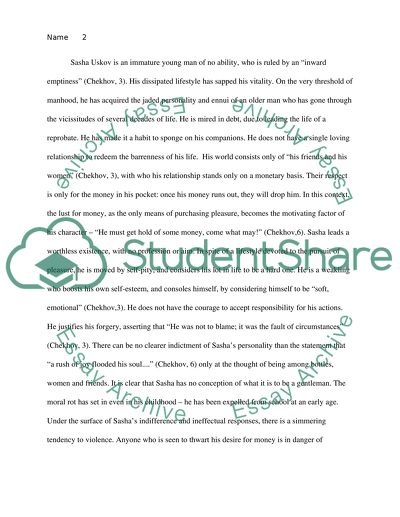Cite this document
(“A Problem by Anton Chekhov Essay Example | Topics and Well Written Essays - 1750 words”, n.d.)
Retrieved from https://studentshare.org/literature/1420889-the-character-of-sasha-in-ypa-problemy-by-anton-chekhov
Retrieved from https://studentshare.org/literature/1420889-the-character-of-sasha-in-ypa-problemy-by-anton-chekhov
(A Problem by Anton Chekhov Essay Example | Topics and Well Written Essays - 1750 Words)
https://studentshare.org/literature/1420889-the-character-of-sasha-in-ypa-problemy-by-anton-chekhov.
https://studentshare.org/literature/1420889-the-character-of-sasha-in-ypa-problemy-by-anton-chekhov.
“A Problem by Anton Chekhov Essay Example | Topics and Well Written Essays - 1750 Words”, n.d. https://studentshare.org/literature/1420889-the-character-of-sasha-in-ypa-problemy-by-anton-chekhov.


